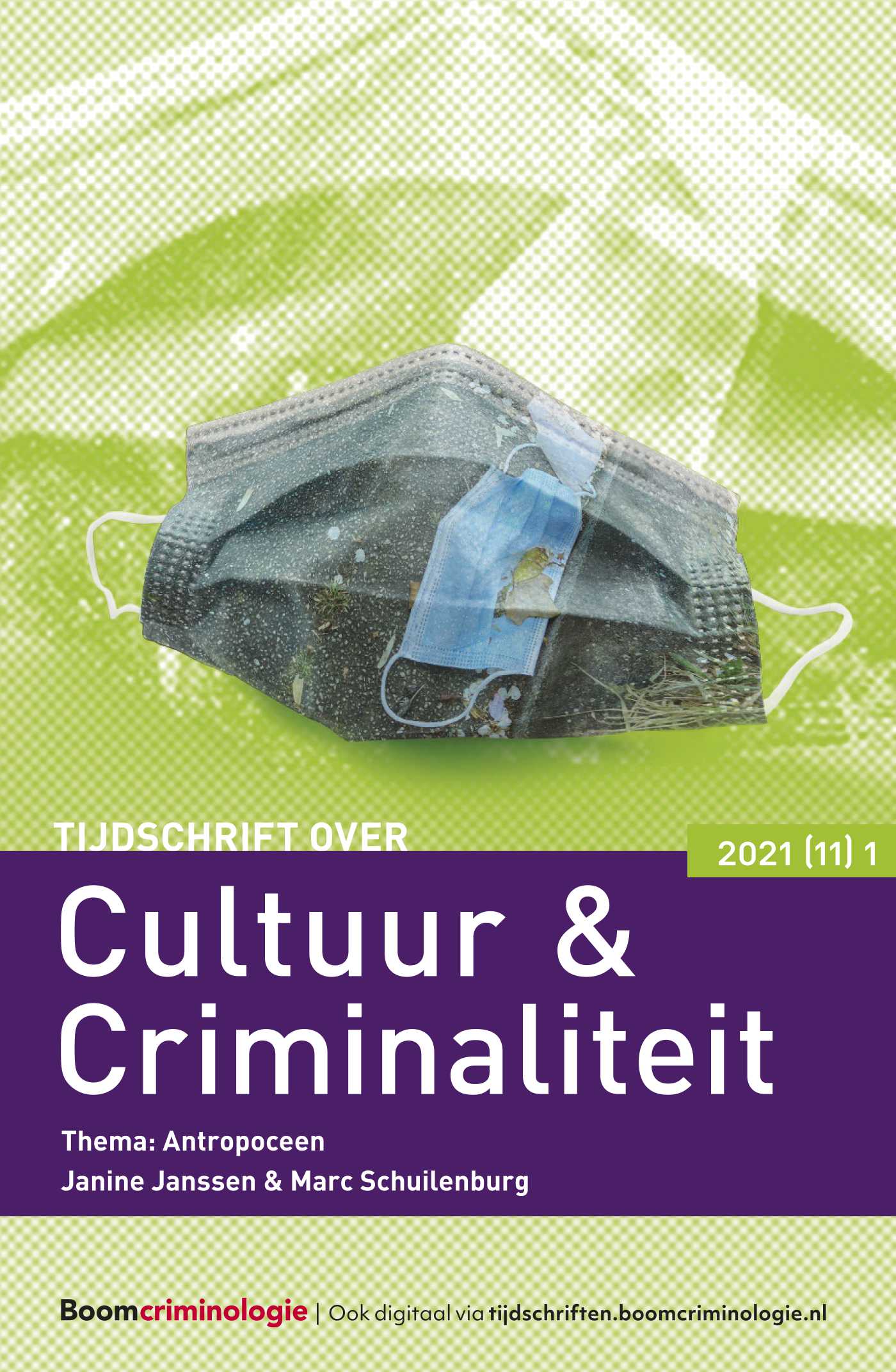|
This introductory article of a special issue on naming and shaming addresses the origins of the concept and its transformation during the last decades. The main conclusion of the article is that contemporary forms of naming & shaming come closer to humiliation and public lynching, rather than redemption and self-reflection. |


Tijdschrift over Cultuur & Criminaliteit
Meer op het gebied van Criminologie en veiligheid
Over dit tijdschriftMeld u zich hier aan voor de attendering op dit tijdschrift zodat u direct een mail ontvangt als er een nieuw digitaal nummer is verschenen en u de artikelen online kunt lezen.
| Artikel |
|
| Trefwoorden | naming en shaming, transformatie, effectiviteit, punitiviteit, herstelrecht |
| Auteurs | Hans Nelen, Martina Althoff en Janine Janssen |
| SamenvattingAuteursinformatie |
| Artikel |
Naming and shaming seksueel geweld#MeToo als politieke beweging? |
| Trefwoorden | MeToo, naming and shaming, seksueel geweld, feminism |
| Auteurs | Martina Althoff |
| SamenvattingAuteursinformatie |
|
#MeToo is a social movement that started on social media and spread from the US all over the world in 2017. The social movement behind #MeToo is characterised by publicly naming and shaming those who exhibit everyday misconduct in the workplace. This is done by spreading naming and shaming stories via Twitter messages. A question that arises here is whether naming and shaming is a suitable and successful tool for a political movement that aims to bring about social change with regard to sexual violence. Has #MeToo changed the social perspective on sexual violence and social norms of behaviour for sexual encounters? To answer these questions, first a historical sketch of the feminist movements against sexual violence will be provided. What is characteristic of these movements and what are possible parallels with the #MeToo movement? From a feminist perspective, are there any dilemmas that a judicial response to sexual violence entails? In order to provide background to these insights, the characteristics of the #MeToo movement, and the associated dilemmas surrounding naming and shaming, will be discussed next. Finally, it will be discussed if #MeToo has led to social changes. |
| Artikel |
Over schade en schandeShaming en stigmatisering van ondernemingen |
| Trefwoorden | naming and shaming, organisatiecriminaliteit, stigma, reputatie, Shell |
| Auteurs | Judith van Erp |
| SamenvattingAuteursinformatie |
|
Naming-and-shaming campaigns, in which civil society groups publicly call upon corporations to end harmful behavior via social media, are a powerful mechanism for social control of corporations. This article investigates naming and shaming in modern, global markets through a case study of Shell - one of the most stigmatized corporations of our time. First, the perspective of organizational sociology is used to answer the question why Shell is receiving such significant attention. Next, the article addresses how shaming manifests itself in global markets. The example of Shell illustrates reintegrative shaming, aiming to end harmful activities, as well as stigmatizing shaming that undermines a corporation’s license to operate. |
| Boekbespreking |
Gestolen eerNaming and shaming van mannen betrokken bij eergerelateerd geweld |
| Auteurs | Janine Janssen |
| Auteursinformatie |
| Significant others |
Over angst, complotten en intellectuelenInterview met Frank Furedi |
| Auteurs | Dina Siegel |
| Auteursinformatie |
| Boekbespreking |
Welkom in het antivirale tijdperkBespreking van Dina Siegel (Ed.), Notes from Isolation; Global Perspectives on Coronavirus Pandemic. The Hague: Eleven International Publishing |
| Auteurs | Hans Boutellier |
| Auteursinformatie |
| Doka |
Naming & shaming |
| Diversen |
Externe reviewers 2021 |

